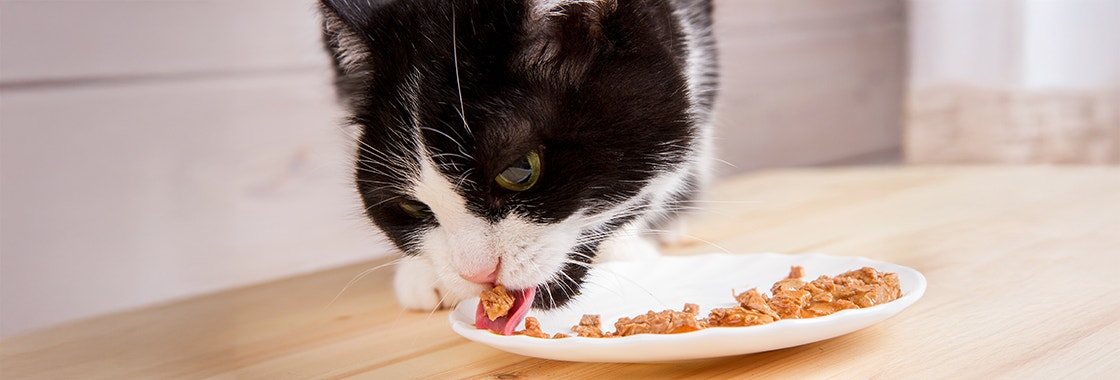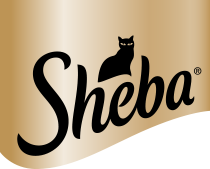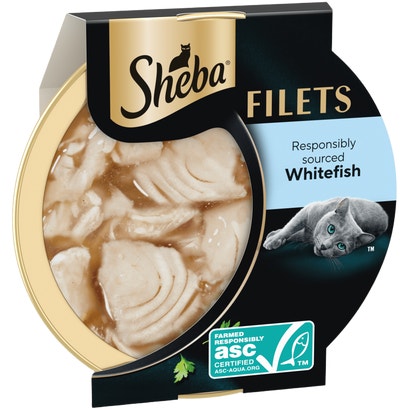What to Feed an Older Cat That is Losing Weight


Share
As most cats get older, their dietary needs start to change, as well as their eating habits and food preferences. Elderly cats need more protein in their diet, from a high quality source, as well as easily digestible ingredients and potentially a softer food texture, such as wet cat foods or meals designed specifically for seniors.
If you’re wondering what to feed an older cat that is losing weight, we’ll look at key ingredients to look for in their meals, as well as consider the vital role of nutrition in preventing muscle wasting in senior cats and maintaining good health into their golden years.
Although some weight loss can be a normal part of their aging process, an old cat losing weight could indicate a health problem or dental issue - particularly if an older cat is losing weight but still eating, or your elderly cat is not eating all of a sudden.
What is the Best Food for Old Cats?
Many pet owners worry about an old cat losing weight as they become senior citizens. With wet vs dry cat food, and special senior cat formulas available, it can be confusing to know what’s best for your pet, and how much a cat should eat. It will depend on your cat’s tastes, and which textures and ingredients they prefer, but it’s important to ensure that the food you give them offers the right nutritional balance for their life-stage and life-style. If their appetite decreases you’ll want to give them healthy food that they enjoy, to encourage them to eat regularly.
If you’re concerned about an older cat losing weight but still eating, it may be that they’re selective feeding, struggling to digest certain foods, or not eating enough protein in their diet. Their palate may also become more refined as they get older, so it’s best to opt for high quality ingredients as well as foods rich in natural or added omega-3 to help benefit their joints. Complete and Balanced Senior cat food perfectly meets the nutritional requirements of senior cats by containing all of the nutrients, vitamins and minerals a senior cat needs in just the right amounts.
Signs Your Old Cat is Losing Weight
Cats may start to look and feel different as they age and lose muscle mass, so weighing them regularly may help you to monitor their condition. If a cat is losing weight, their coat may start to look less vibrant, their shape may change, and their bones may appear more prominent. Look out for signs that they’re eating less, drinking more or less, or appear more lethargic.
If you’re worried about an elderly cat not eating as much, or even a senior cat eating but losing weight, keep an eye on how much they’re consuming at mealtimes and if they’re avoiding certain foods or textures. If you’re concerned about an elderly cat not eating, it’s important to contact your vet to rule out any potential health problems. Early detection of health issues can help prevent your cat from becoming more unwell in the future.
How Much Should I Feed My Senior Cat?
Just like their human friends, a cat’s metabolism starts to slow down as they age, and they may become less active. This can mean that smaller portions are needed. But every cat is different, and some may overeat and put on weight as they get older, so it’s important to observe them and adapt their portions appropriately. Any long term health conditions can also affect how much they should be fed.
As a guide, how much wet food a cat should eat is based on their existing weight - for example a medium sized 4kg cat should eat around 250-300g per day. You may want to add slightly more for an underweight, active cat, or senior cat eating but losing weight, and less for a cat who is putting on weight or stays indoors all day. Remember to make sure that fresh drinking water is available at all times.
How to feed an older cat losing weight?
If your older cat is losing weight but still eating, and your vet has ruled out any health problems which may be causing it, it’s time to take a look at their diet and consider some adjustments to their mealtimes to help support their overall health and weight maintenance as they age.
- Senior cats may need a special diet that’s more protein dense, with more calories and healthy fats.
- Look for senior specific formulas, or choose wet foods over dry.
- Shop for flavours you know they’ll like.
- Avoid giving human foods or offering milk or cream (remember that cats are lactose intolerant and dairy products can cause digestive upsets).
- Some senior cats’ decreased appetites can be supported by giving small, more regular meals.
- Consider if your cat needs a lower lipped bowl, or easier access to their feeding station.
- Elderly cats may be less tolerant to certain flavours, smells, noises or distractions as they eat so try keeping these to a minimum.
- You may need to top up their fresh water more frequently to avoid dehydration.
- Ask your vet about whether your cat could benefit with supplements to support their nutrition or digestion.
Protein-Rich Diets for Weight Maintenance
For an older cat eating but losing weight, high quality, nutritionally dense protein can be key to maintaining their muscle mass and staying a healthy size. If your cat loves eating tuna, look for fish-based recipes which will contain natural omega-3 fatty acids to support mobility. Some cats love sauce-based wet foods, which can be more palatable for older cats, whereas others prefer prime cuts in jelly, so choose what you know they love to encourage them to eat and prevent muscle loss. Be sure to choose foods made from high quality ingredients made specifically for senior cats.
For a special treat, high in protein and rich in beneficial calories, try our pate and terrine which your cat will love.
Portion Control and Monitoring
Portion sizes can start to change as your cat gets older, particularly if they become less active or have any ongoing health problems. Generally, as aging cats may not need as much food as when they were younger, it’s important to monitor their feeding habits to ensure they’re not under or over feeding. Pre-planning their meals based on their size, and weighing out any dry food at the start of the day, makes it easier to monitor how much they’re consuming. You can adjust the amounts based on whether they’re losing or gaining weight.
Feeding Schedules for Older Cats
Although some cats may continue their usual feeding schedule as they get older, many senior cats prefer smaller, more regular meals which provide consistent nourishment for a slowing metabolism. If your cat isn’t finishing their food, try switching from twice daily to three or four smaller meals spaced evenly throughout the day. If your cat is underweight, you could also try leaving some dry food out for them to nibble on if they’re not ready for a full meal. If you notice your cat is more hungry in the morning, you could tailor their portions to encourage them to eat more at the start of the day.
Nutritional Needs of Senior Cats
If you’re wondering what to feed an older cat that is losing weight, it may be that their current food isn’t high enough in protein or beneficial fats to meet their changing needs. By focusing on high quality protein levels and calorie intake, to prevent weight loss despite continued eating, you can help support your cat’s overall vitality. Varying their diet with vitamin-rich formulas based on meat and fish over carbohydrates can support their joints, digestion and immune system, and selecting low sodium and low phosphorus foods can help maintain kidney health. Foods should be easy to eat and digest, and fresh water should always be available to drink.
What supplements should I give my elderly cat that is not eating?
If you’re wondering what to feed an older cat that is losing weight in terms of supplements, it often isn’t necessary to offer additional supplements if they enjoy a balanced and varied diet. However, some health conditions may benefit from supplements and added vitamins, which your vet will be able to discuss with you. Omega-3 fatty acids, glucosamine or chondroitin may be recommended for cats with joint issues, and prescribed probiotics may help some cats with digestive issues. Always check with your vet first before giving your cat supplements.
Caring for an older cat losing weight
Although some weight loss and muscle mass decline is expected as cats get older, there are ways to encourage them to stay in good shape well into their senior years. It’s important to care for your cat by monitoring their feeding habits to make sure they’re getting the nutrients they need to maintain a healthy weight. If your older cat is eating but losing weight, it might be time to gradually switch their food to higher protein meals made from quality sources. It’s also worth trying more wet food, which is easier to eat, and offering smaller, more regular meals based around their favourite ingredients to encourage their appetite. If you notice sudden changes in your cat’s eating habits, or your elderly cat is not eating, it’s important to take them to see the vet as soon as possible.
Even older cats will enjoy sharing those magnetic moments with you, albeit at a slightly slower pace. Reward them for their loyalty with perfect portions of SHEBA® wet cat food at mealtimes, and watch them tuck into a nutritious, balanced meal designed to keep your cat - and their appetite - healthy.
Older Cats Losing Weight - FAQs
What can I give my elderly cat to gain weight?
A senior cat who is losing weight will benefit from a nutritionally balanced meal which is high in protein and tailored to meet the requirements of a senior cat.. Wet cat food can often be easier for elderly cats to eat, and you could consider offering smaller, more frequent meals to aid digestion and energy release.
What to feed an older cat that's losing weight?
High quality cat foods made from premium protein sources are best for older cats. You could choose a senior cat food designed specifically for elderly cats, or offer them bigger portions of their favourite cat foods. Don’t be tempted to give them more treats, as older cats need nutritious high protein meals to maintain muscle mass.
Why is my old cat getting skinny?
As cats get older their metabolism starts to slow down, they may become less active, and they can be more prone to health problems as they enter their senior years. It can be normal for cats to lose some muscle mass and start to appear more boney, but if you’re worried that your cat is suddenly losing weight or off their food it’s best to consult your vet.
What is the best food to feed an elderly cat?
Older cats need food that is easy to digest, and many prefer wet food as it’s easier to eat if they suffer from dental problems. Opt for high quality protein-based meals, choosing flavours and ingredients that you know they like to encourage regular mealtimes. Be sure to offer new foods gradually, to avoid digestive issues and keep potential fussy felines happy.











